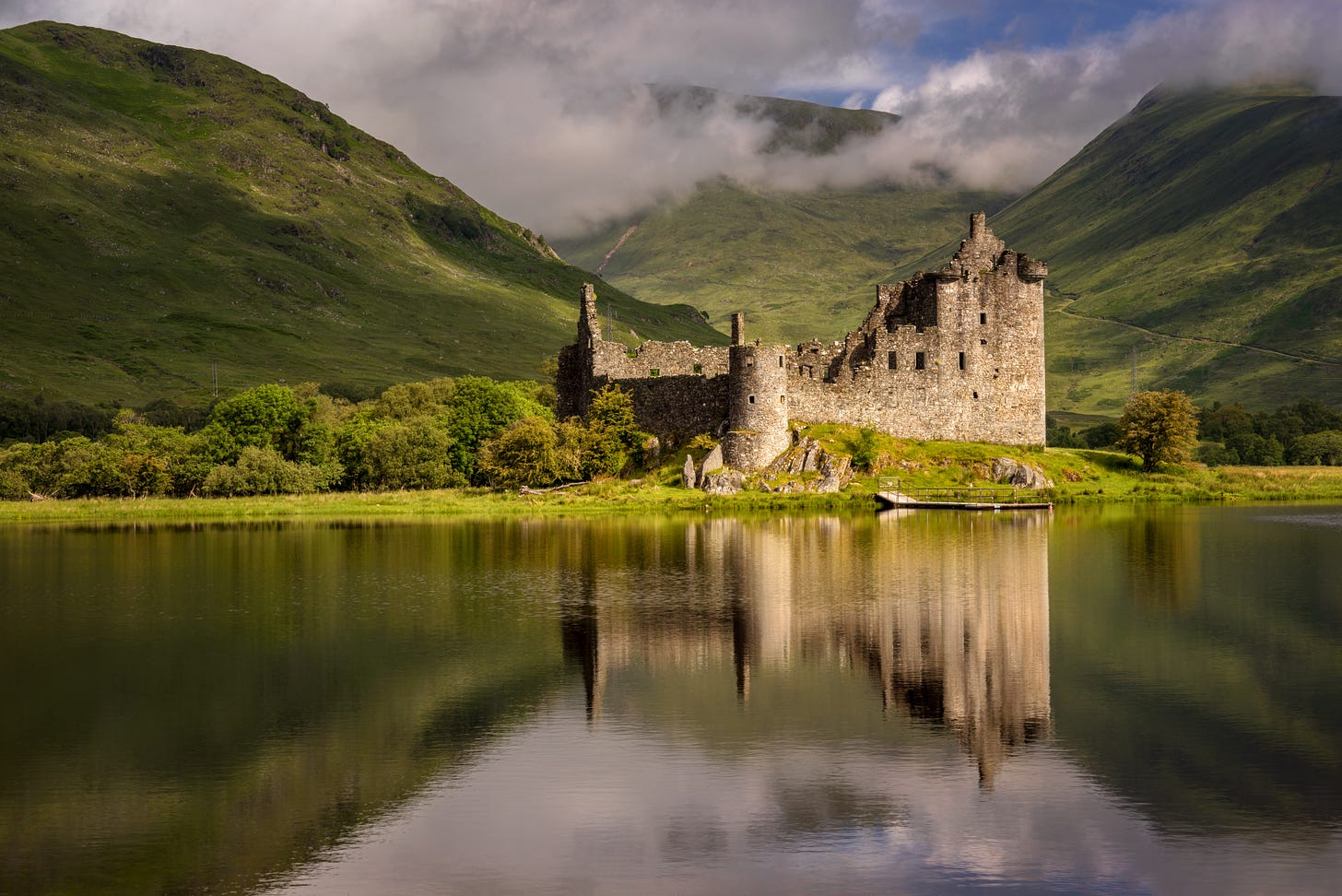Inklings Week: The Freedom We See in Prince Caspian
(Welcome to Inklings Week 2023. You can find all the posts here. Subscribe and don’t miss a post!)
“And then—oh joy! For he was there: the huge Lion, shining white in the moonlight, with his huge black shadow underneath him.” Prince Caspian by C.S. Lewis
Prince Caspian, the story that follows The Lion, the Witch, and the Wardrobe, is set around 1,300 years after the Pevensie siblings’ last visit. Much has changed in Narnia, including the seemingly lost belief in Old Narnia, Aslan, and all the fantastical creatures we came to know in the first book.
I love when the stories mention the history of Narnia. I’d forgotten that Caspian's line, the Telmarines, were pirates from our world (thus why Caspian ruled as a son of Adam), had a famine and then invaded Narnia. What are the odds stories from the “missing” years will appear? I should probably go to England and search for them. I’m so curious what happened in all those years between the destruction of the White Witch and Caspian. Did the Telmarines rule for all those years then? Who ruled Narnia after the siblings left? So many questions I’d love answered.
I loved my recent re-read of Prince Caspian and as with any of Lewis’ books, there are several themes that stick out, like courage. But after reading it again this year, what stuck out to me was the freedom that comes in belief.
I saw it in many of the characters we love, but I also saw this with Nikabrik and what he missed out on. He was willing to delve into anything that he thought would bring him the power he craved. He was willing to seek the White Witch, the one his ancestors followed. Not because he believed she would bring freedom for all of Narnia, but as he said: “We want power: and we want a power that will be on our side.” He had let bitterness stew for so long, he missed out on the path that led to the freedom only Aslan could bring.
What might have been for Nikabrik. We see that longing in Caspian after he died: “I am sorry for Nikabrik,” said Caspian, “though he hated me from the first moment he saw me. He had gone sour inside from long suffering and hating. If we had won quickly he might have become a good Dwarf in the days of peace.”
Yet, this novel is full of hope. We see it in Caspian, who, being taught the stories from his Tutor, went all in as soon as he was free of his Uncle. His love for Narnia and the Narnians was immediate and he experienced joy for the first time in his life. We see Trumpkin experience freedom when he finally believing that the children were the Kings and Queens of old.
One of my favorite parts of the story though, is at the end, when Aslan is going through the village. His interaction with the mistress in the village brings such joy to my heart:
“Oh, don’t, don’t,” she said. “I’d love to. But I mustn’t. I must stick to my work. And the children would be frightened if they saw you.”
“Now, Dear Heart,” said Aslan to the Mistress: and she jumped down and joined them.
And then at the end when Aslan gives the people of Telmar the chance to go back to our world:
“You come of the Lord Adam and the Lady Eve,” said Aslan. “And that is both honor enough to erect the head of the poorest beggar, and shame enough to bow the shoulders of the greatest emperor on earth. Be content.”
Freedom in moving forward and being content, whatever the past may be.
As a person of faith, so much of this story reminds me of the freedom found in Christ. I love how Lewis is able to bring to life so many parts of our faith through fiction.
What does that look like for you? I’d love to hear what this story has meant for you!
That’s an official wrap for Inklings Week 2023! Thank you for joining in another year!
© 2023 Jamie Lapeyrolerie




